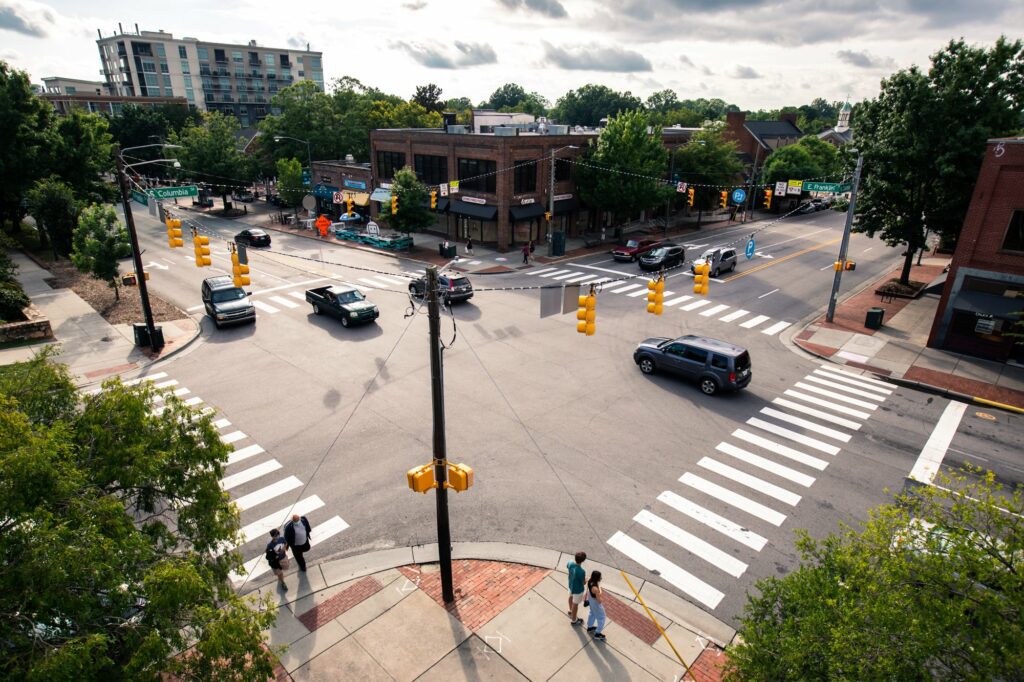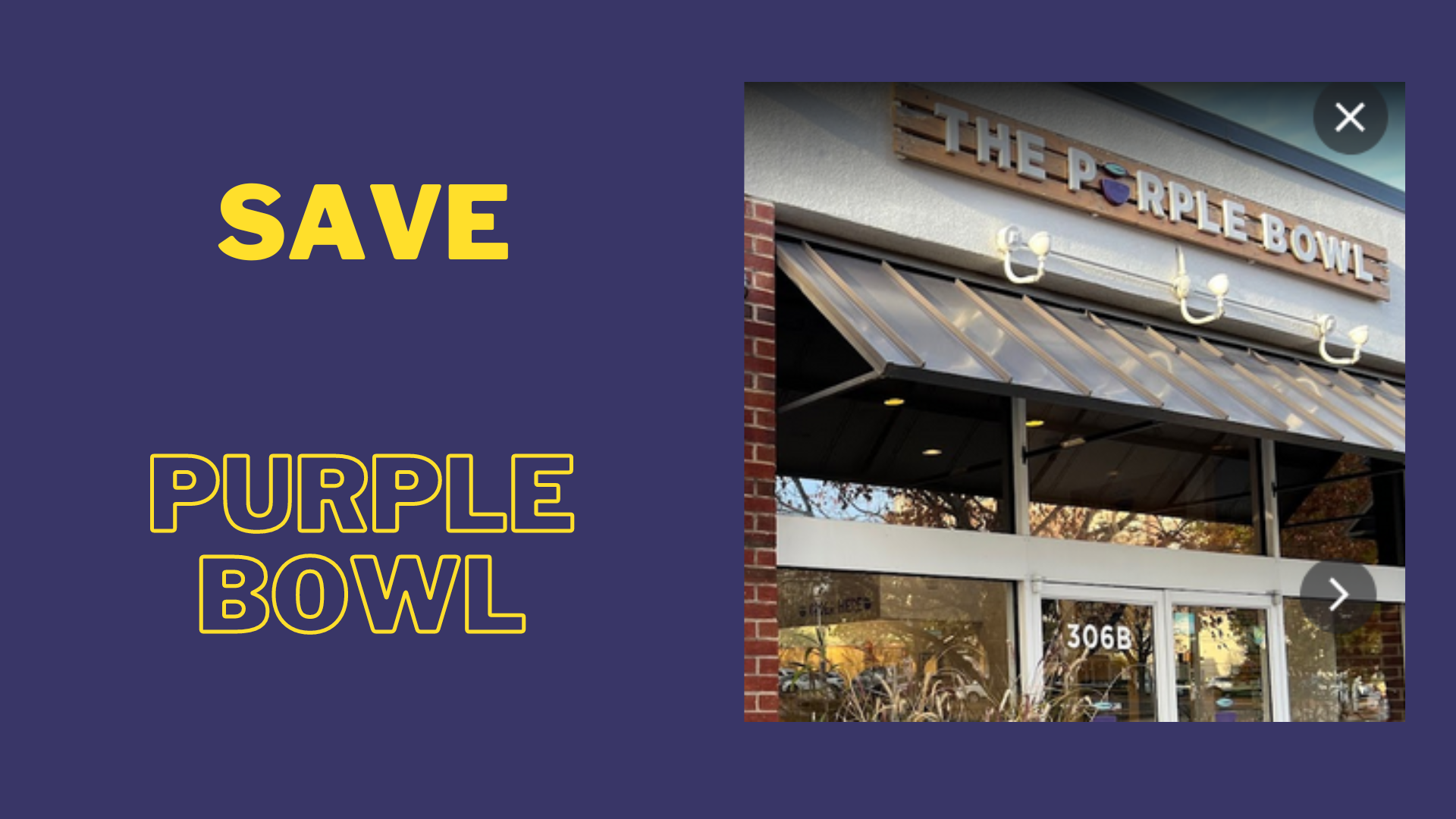It’s no secret that the Town of Chapel Hill wants more commercial development here, and there are good reasons for that:
- It could take some of the tax burden off residents who now contribute a higher share of the town’s property taxes than neighboring communities.
- It diversifies our economy. Economically healthy places have multiple industries that help mitigate shocks that come from economic cycles or, in the case of higher ed, budget cuts.
- It adds jobs in town, which reduces the vehicle miles so many of us travel to get to RTP and beyond, and workers spend money here even if they do not live here
In recent years, Chapel Hill Town Council has pursued a variety of low-hanging fruit strategies to add to our commercial base. For the most part, these strategies have been modest and the results haven’t hurt. By that I mean they haven’t radically altered the look and feel of the parts of Chapel Hill that make it, well, Chapel Hill.
We’ve added places like Carraway Village, for example, and the light industrial park by the interstate. Wegmans and its giant parking lot replaced a car dealership and its giant parking lot. The health tech company Well Dot quietly moved into existing space on Franklin. The redevelopment of West Rosemary is large by Chapel Hill standards, but is anyone really going to miss the parking decks and lots it will replace?
The Purple Bowl predicament is a sign that we’ve reached the painful stage of economic growth. What could be good for our overall economic well being could be hell for our local businesses that make this place feel like home.
If you’ve ever moved away from Chapel Hill long enough to miss it, or had friends who live elsewhere ask you about what makes it so great, your mind probably turns to certain spots on campus, stone walls, and a few local institutions.
For me, it’s places like Merritt’s Grill, Cafe Driade, and the Lantern. For you, it might be the Sutton’s the Varsity Theater, or Flyleaf Books.
And they are all threatened. Maybe not today, maybe not tomorrow, but it could come at any time and happen in the blink of an eye (recall how caught off guard we were when a developer held the town and residents of the Tar Heel Mobile Home Park hostage over a self-storage facility).

The potential redevelopment of 306 W. Franklin is a chance to try something different
That’s because it’s a different situation. Usually, the town is begging businesses to move here and has to provide them incentives to do so. In recent years, Wegman’s, Well Dot, and Grubb Properties have all received financial incentives to locate or expand in Chapel Hill.
But in this case, the developer Longfellow Real Estate Partners has already bought the land where it wants to open a new lab. They want to invest here. As far as I know, they haven’t asked for or received any incentives to locate here. If so, that’s a seismic shift for Chapel Hill and a good sign (or a warning sign) that more investors and commercial developers will follow.
We need to figure this out quickly
Moving is not impossible for small businesses, but it’s disruptive and very costly. It involves finding and remodeling a new location, trying to seamlessly close one location and open another, and making sure your customers know what’s happening when – and hoping they’ll find their way to a new location. Relocate temporarily during a lengthy construction project and the headaches double.
Fans of Purple Bowl are mounting a spirited email and social media campaign to convince town council to save the eatery. Many argue that the town needs to save local businesses like Purple Bowl but doesn’t need to welcome large outside businesses like the proposed lab building.
I disagree, in part. We need both.
So what’s the solution?
I do not know what Purple Bowl’s plans or wishes are. From the email campaign, it seems they prefer to stay right where they are and not be impacted by the redevelopment of the property. And perhaps that’s an option, among others:
- The town could simply reject the proposed development for the sake of Purple Bowl.
- Or it could potentially reduce the scale of the proposed building, or allow more height in some parts while keeping it one story closest to Franklin such that Purple Bowl (and Chimney next door) stay in place, unaffected by the redevelopment.
- Alternatively, the project could be built in stages rather than demolished and reconstructed as a whole. That could enable some tenants to remain in place while part of the project is completed, then move into a new space close by.
- Or, Purple Bowl could move elsewhere on Franklin, either permanently or temporarily. In the latter case, Purple Bowl would ideally move back into the ground floor of the redeveloped property when construction is complete, probably gaining a bunch of new customers who will be working in the lab space above.
Each of these options has drawbacks, and you can imagine not wanting to deal with any of them if you’re the (from everything we know, very nice and extremely community-oriented and lovely) owner of Purple Bowl.
What if Purple Bowl didn’t have to deal with it?
What if the solution were as simple as telling the developer, “Hey, why don’t you figure it out? Find a way to build your building, bring new jobs downtown, expand our tax base, AND help local businesses survive.”
This would be a new approach for the town, but it’s actually not that different from other negotiations it’s taken part in. The town regularly cuts deals with businesses in pursuit of economic development, but usually the town is negotiating from a disadvantaged position.
The town has more leverage in this case. Longfellow has already purchased the land they want to redevelop (rather than making the sale contingent on project approval, as is often the case with such redevelopments). That indicates they are quite serious about opening an office here and that it will behoove them to make the project attractive to town council.
If that means helping Purple Bowl (and Chimney) stay in place or close by, that’s what the developer will likely do.
Not only will it be worth it for them, it won’t be that difficult to do. Creating spaces for businesses is what commercial developers do, and they do it well. And downtown Chapel Hill has oodles of vacant storefronts that could easily fit Purple Bowl, whether temporarily during construction of the proposed lab or as a permanent new home. Several are former restaurants, meaning that plumbing and electrical is likely in place to make for a quick conversion to a new Purple Bowl space.
Planning such a move would be a nightmare if Purple Bowl had to go it alone, and difficult even with the help of the Downtown Chapel Hill Partnership, but it gets a lot easier when a likely $100 million plus investment is being held up.
Council’s negotiating stance toward Longfellow could look something like this:
- Identify Purple Bowl’s (and other current tenants) long term preference.
- If that preference is to stay open in downtown Chapel Hill, develop and finance a plan to ensure that happens and with terms that support the sustainability of Purple Bowl, such as a guarantee that it can continually operate during construction, marketing support so it doesn’t lose any customers, or a long-term affordable lease in Longfellow’s new building.
- In return, the town will fast track the approval and permitting of the new building, cost savings from which could be more than enough to support Purple Bowl through a move.
It’s that easy?
Sure, why not? Remember when COVID hit how quickly businesses and local governments found new ways of working? What would have been unfathomable 6 months earlier – taking away car lanes for pedestrians and outdoor dining and conducting town business over zoom – quickly became perfectly natural. We needed a new mindset and we found one.
Like then, Chapel Hill is facing change (as it should – cities, even small ones, exist precisely to encourage and facilitate change). We should embrace it while also protecting what makes this place special. We can and we should do both.

